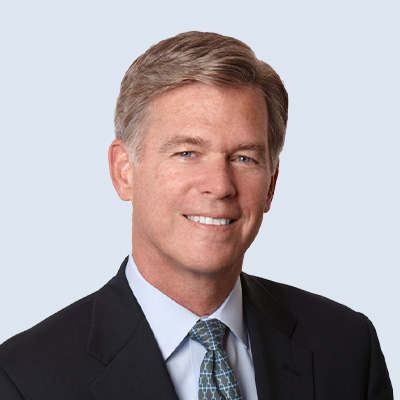Gary Tubridy: I’m here with Fran Katsoudas, Chief People, Policy, and Purpose officer at Cisco. Great to have you here, Fran. Oh, thank you so much for joining us for a conversation. I love the title: People, Policy and Purpose. It pulls so many things together, yet I’ve not encountered this title before. So tell me about it. Where did it come from? And tell me about the role itself.
Francine Katsoudas: So as a company, we changed our purpose early in 2020 to power an inclusive future for all. And what was so amazing about that was as soon as we established that purpose, we could see that across the company. Our employees were thinking about “How we do meet that purpose?”. All of us, from a leadership perspective, were doing the same. And one of the things that we did was we brought together organizations that truly can architect how Cisco shows up to this purpose around the globe. And you wouldn’t be surprised to hear that organizations like our people organization,and government affairs, and real estate in our country, digital acceleration, all play an important role in how we show up not only internally, but to communities and society more broadly. And because it’s so important for our employees to impact the world in a positive way, this organization, together with all of our employees, really works on the framework and the work, which is exciting. It’s something where I would say we learn every day, and I think this word “purpose” is going to be bigger and bigger for companies as we move forward.
Gary Tubridy: I’m struck by your mentioning when you changed and highlighted Cisco’s purpose, it began engaging the people, and that’s frankly not true for all companies. Cisco’s people were extraordinary in terms of seeing and engaging immediately in that.
Francine Katsoudas: Yeah, it’s interesting because something that I’ve realized over time is that there are things that we can launch as leaders that have amazing adoption and you can feel it immediately. And what happens in those situations is that your employees embrace it and they pull it in. And then there are times where that doesn’t happen and you go back and you work on the communication. But as it relates to our purpose, our employees embraced it. And not only do they embrace it, I think they started to question “What do we need to do in this situation to meet this purpose?”. And I think that is a bit of a growth mindset that we want as a company and in everything that we do. Sometimes we joke that our employees will say “Well, hey, wait a second. Given that we power an inclusive future, should we be doing this?” And I love that. I think it’s good to have a purpose that challenges you every day. Yeah.
Gary Tubridy: We’ve talked and you’ve spoken about the workforce of the future, and I wonder if you might comment on what makes the workforce of the future different from the workforce of the past?
Francine Katsoudas: Well, the first thing that I would say is I think across every industry there is a realization that how we thought work happened is not necessarily how it has to happen. And so, I think there’s a level of openness and flexibility as we think about work. And I don’t mean just where the work occurs, but how we get that done. I think that’s goodness. I think it allows us as companies to get a lot more creative. I think in this future world, our leaders play such an important role of connecting to each individual, thinking about how teams need to grow and evolve. I think at Cisco, the way in which we talk about skills today is so much more than ever before, and there’s a level of accountability that we have together with our employees to ensure that our skills evolve as the company evolves. And I will tell you, we’re not there yet. It’s something that we’re working on. But I do think that’s another critical element of the future of work. And the last thing that I would say is that our technology has to work in ways that enable the behaviors, the rituals that we want to have as companies.
Gary Tubridy: I think companies-the good companies-will always feel like it’s a work in process because it’s not static. And you can’t sit back and say “I think we’re done”. You’re always moving forward in that context.
Francine Katsoudas: So interesting. There was a leadership program that I participated in about ten years ago, and one of the coaches said to a member that was part of a cohort who felt like he had arrived. And he said something like “At the moment that you think you’ve arrived, your career is starting to actually backtrack.” And I think you’re right. I think that applies to all aspects of our career or how we view work or culture. I just think it’s kind of healthy to believe that we’re never there.
Gary Tubridy: Yeah. A certain amount of discomfort is probably a good thing. Yes. I agree. Cisco has always been known to be and ranked to be one of the great places to work. And most recently, it has been named the best place to work. So congratulations on that. That’s great. And you’re very upfront about creating a people deal. And I wonder what elements of the people deal make Cisco such a great place to work.
Francine Katsoudas: So it’s interesting because when we establish the people deal, the concept there was we’re going to be really overt with what we expect and please be really overt with what you want. And there was this handhold or this contract if you will. And I love that because at the moment, I think we were talking a lot about employee value proposition through the lens of what a company offers. But it really does go two ways. And so I think that was an important stepping stone for us. I think as we evolve to a conscious culture, this element of having employees own the culture and feel that level of accountability where if they see an opportunity, they act on it because they’re an owner as much as me or any other member of the leadership team. I think that was a big pivot for us. And what started to happen was there was a deeper level of engagement around opportunity areas, things that were not working, how we could be better. That fuels the company. I think it’s more of a transformation motion than we actually talk about. And to see us here with some improvement in the overall engagement or how our employees feel is good and it’s something that we will continue to focus on.
Gary Tubridy: Yeah, let’s talk about that purpose to power an inclusive future for all. It’s a short yet powerful purpose. Tell me about how that was developed. And my question was how you use it to energize your team. And it also sounds like a kind of empowers the team a little bit.
Francine Katsoudas: I do think that it empowers the team as a leadership team. When we looked at the impact of the technology that we sell around the globe, when we look at the impact of our people, what we realized was that success for us is truly this ability to power, this inclusive future for all. And it was a little bit of an unlock. I think it allowed leaders to think larger than they had been around the opportunity for us. I think when you have a purpose like this, to your point, it’s concise, but it also creates a lot of space. And when you create space, people can step into that space. And so there is an element of empowerment that comes with it as well. And as we talked about, I think we, when we created it, didn’t have it figured out, and we still don’t have it figured out. And I think that creates space for our people, too. We have worked over the last year and a half to operationalize it a bit. And so we take every word within the purpose, and we really figure out what are the key initiatives that support this. It can’t just be a great statement. And that’s something that I think will work on for quite some time.
Gary Tubridy: It is wonderful in its conciseness and if you were to take an elevator ride with a Cisco employee and ask them about the purpose of their company, my guess is that most of them would be able to tell you that right then.
Francine Katsoudas: Yeah. It’s funny because Chuck Robbins, our CEO, has said the same thing, and I think that’s meaningful to him and to all of us as leaders that our people know what it is, and then hopefully, it inspires them to be better too. Yeah.
Gary Tubridy: So you have used a term which I also like-“purpose alongside business strategy”. Tell me about how the purpose then kind of helps guide the business strategy and how they’re actually kind of coming together.
Francine Katsoudas: Absolutely. So what’s fascinating is if you look at companies over the past 30 or 40 years, many companies started with this concept of giving back to the community. And it was something that was really powerful. It signaled what a company cared about, but typically what it would do is it would sit on the side of business and in a good year, maybe you do a little more, in a tough year, maybe a little less. And so there was something about that which was a little bit more optional. And I think even then, we understood the power that it had with bringing people together. I think over the years we’ve evolved as a society where there’s an understanding more of this shared value that occurs with companies. And I think now from a Cisco perspective, we’re at a place where we recognize that our purpose and our business strategy are actually one and the same. And so, an example of that is that we’ve always been really proud of the technology that we build, but now that technology will also create energy savings for our customers, helping them to meet their net zero goals. And that’s a really cool way for us to really focus on that inclusive future and what that looks like as one example.
Gary Tubridy: Yeah, but it’s not about the product, it’s about what the product enables. That’s exactly right. And your people can get behind that, particularly if what it is enabling is good stuff.
Francine Katsoudas: Yeah, and that’s exactly the intent. And so, we would not be able to tell our engineers how to build the technology in a different way. But when they hear this as important, you better believe they’re going to and then, that inspires them. And so, yeah, there is something really powerful in getting focused on the outcomes to your point.
Gary Tubridy: You know, you’ve used the term about building a conscious culture. Tell me a little bit about [it]-and I like that term because it’s not the culture that emerged. This is the culture we’re trying to build. Tell me about the attributes of that culture and the steps you’ve taken to build it and nurture it.
Francine Katsoudas: What’s so interesting about conscious culture is that the way that it came into being was there was a group of employees who brought an issue forward to me that they felt like wasn’t handled properly, and there was probably about ten of them and they were right and they explained the situation. And one of the leaders that I was with basically said, “Wow, like if all of our employees felt this committed to ensuring that every situation was handled properly and felt permission to always share when something wasn’t working right, think about how much better we would be”. And so, that was the beginning of it. The key elements of a conscious culture for us are really the focus on the environment and understanding the environment that we’ve created and what we want to create, to your point about being deliberate. The second element is all about the characteristics, the values. And then, the third element is really about experience, because as you know, the experience that someone has on a day-to-day basis with their team or with their leader, that’s the culture they know. And so, our belief is that if we focus on those three areas, if we’re transparent there, we will drive toward this conscious culture.
Gary Tubridy: It always has struck me that as I have worked with Cisco and spoken with Cisco executives over the years, you’ve always put a lot of emphasis on listening to customers, listening to your people. And I wonder-and you alluded to such a case in the last question-are there examples of where you’ve listened to people and come up with some really great ideas that turned into initiatives that have been valuable to the company?
Francine Katsoudas: Absolutely. So if I start with the customers and partners that we have at Cisco, I would tell you that they have a lot of really good perspectives on the technology or the needs that they have. As we were going through COVID, as an example, the realization that their companies and their people were going to work differently started to drive very different needs from a security perspective that we needed to be responsive to from an employee perspective. Yeah, some of the-I think some of the coolest things that we do have come from employees’ ideas. Once a quarter, we give all employees the day off. The entire company shuts down. We call that day “Day for Me” and we ask people to do something that just fuels their passion, their interests. When people come back after that day, the energy and the excitement that they have, and the fact that I think it gives us a little bit of a mental health break, is so powerful. That’s one great idea. Our employees have come up with a lot of ideas around benefits, around talent movement, around the way in which we capture our skills and I do think those ideas are a differentiator for us.
Gary Tubridy: Yeah. You know, building on that, you’ve mentioned that there’s a management philosophy of being there, being proximate to the people, and trying to be mentors to your people and that that has implications in terms of management style in the company. Tell me a little bit more about that.
Francine Katsoudas: Yeah, you know, I think one of the beliefs that we’ve had for years is that our leaders are servant leaders, which means that they’re in service of their teams and not the other way around. And I think more broadly across companies, we’ve all been moving in this space. It also means that there isn’t one way to be a leader. It means that as a leader, we think about how we’re best for every single person on the team. It’s a lot harder than it was before. And in addition to that, I think there’s an accountability that we have for how we architect the experience of our people, the listening that I’m talking about as it relates to our culture. We want our leaders to have as it relates to everything that we do. We think that’s incredibly critical.
Gary Tubridy: There’s a saying in the military that officers eat last. Yes. And that defines servant leadership. I like the term and I like the way you describe that. You know, people are so important and Cisco does such a great job in attracting great, great people, keeping great people and building great experiences for them. And yet, here we are in 2023 and the tech world is starting to think about layoffs. And I wonder, what role does the purpose and Cisco’s people culture play in thinking about some of those difficult decisions?
Francine Katsoudas: Yeah, I mean, the first thing I would say is these are some of the hardest decisions that I think we make as leaders. And the decisions are sometimes as a result of market shifts or changes perhaps going into some tough economic times. And then sometimes, they come as a result of our success, meaning as we move into new technology areas, we then require different skills and different capabilities. And how you move people to those new areas is incredibly hard. But there are times where I think you have to make some tough calls as a company, and I think the way that purpose intersects these decisions is really all about the how. Yeah. How transparent are you? To what extent do you take care of your people? How do you help them land in something else within the company, outside of the company? Do you provide support given the stress and the anxiety that comes from this? And so, what I would say to you is in these tougher moments, holding ourselves accountable to the behaviors of a conscious culture as we navigate through, I think really puts us in the right place in the right direction. Even with the toughest calls.
Gary Tubridy: You can’t run away from it, but you can square the shoulders and do it the right way.
Francine Katsoudas: That’s right.
Gary Tubridy: And that’s not the easy way, at least not immediately, but I think people remember.
Francine Katsoudas: I agree.
Gary Tubridy: Companies-my last question to you, Fran, is you oftentimes have to balance things and we’re balancing being good stewards of our people, good stewards of the customers, trying to be good stewards of the ecology. Any advice that you might have for leaders in terms of in times of turmoil, how do you keep these things balanced in a way that makes sense?
Francine Katsoudas: Yeah. So, you know, the first thing that I would say is it’s so important as a company to really start with understanding what it is that you stand for. I think it’s critical to understand where your customers are, what they need, and what they are going to need. I think it’s important to engage your people in those discussions. I do think I’ve always been a big believer that scenario planning as a company and with our people allows us to not only think through what is coming, but the different ways that we can respond to that. I think it’s really important to not look at this balance between people and business. I do think that they’re one and the same, and I think the ability for us to look at some of the challenges that we have and look at where we’re trying to navigate from a business strategy and then from a people perspective, what are the levers that you pull around your culture, your leadership, the way in which you organize your offerings and not feel like it’s a scale where you’re trying to keep it in balance? Because these things, I think, are one and the same.
Gary Tubridy: People are the business. Don’t think about balancing one or the other. Think about them holistically. Fran, thank you so much for your time here today. Really enjoyed it.
Francine Katsoudas: Thank you so much. I appreciate it. Yeah.




